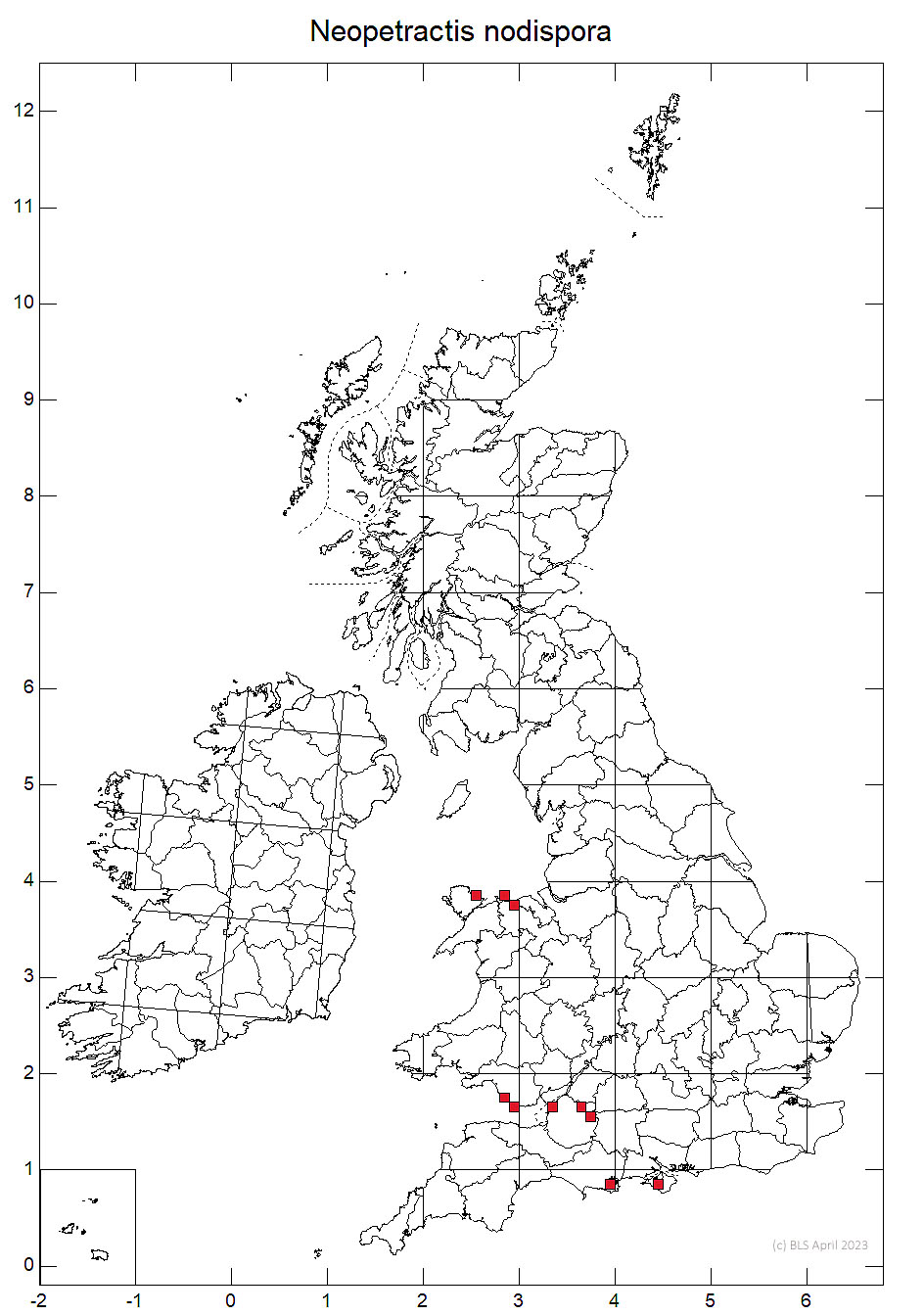Found on limestone and mortared walls, where it forms a diffuse, pale pink thallus, which is conspicuous in the field, with Trentepohlia as the photobiont. Both fertile and sterile thalli of N. nodispora have numerous pycnidia, visible as small dots, which produce colourless, irregularly shaped conidia formed of clusters of 5–15 or more cells. The apothecia occur less frequently than the pycnidia and are immersed with the margin not or scarcely distinguishable from surrounding thallus and the ascospores have have a perispore, are colourless and 3-septate, 16·5–25 × 5·5–7·5μm, with the cells containing oil droplets. Described in 2009, but still with only a few records from south and north Wales and churchyards the south west.
A detailed description is given in Orange (2009) The Lichenologist 41: 213–221 as Petractis nodispora. Originally noted as not being closely related to the type of Petractis and it was transferred to a new genus Neopetractis by Ertz et al (2021) as Neopetractis nodispora.

Ertz, D., Sanderson, N., Lebouvier, M. (2021) Thelopsis challenges the generic circumscription in the Gyalectaceae and brings new insights to the taxonomy of Ramonia. The Lichenologist. 53: 45 - 61. Link
Orange A. (2009) A new species of Petractis (Ostropales s. lat., lichenized 972 Ascomycota) from Wales. Lichenologist 41, 213–221. Link
Text by Neil A Sanderson
